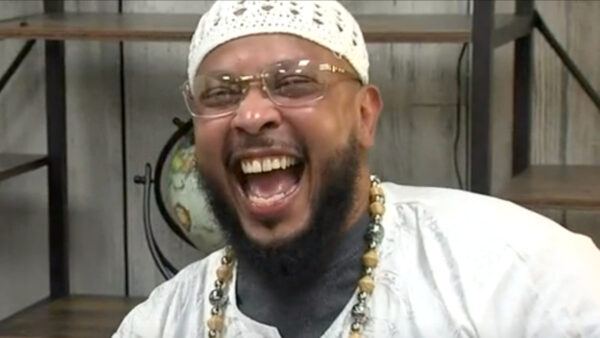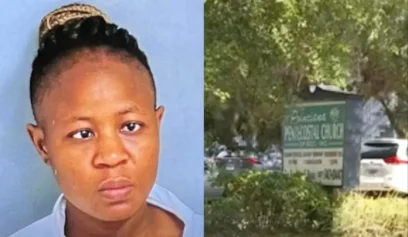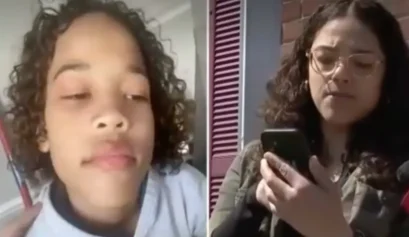An Indianapolis man has been released after spending 25 years in prison following an overturned murder conviction.
Leon Benson, 47, was released from the Correctional Industrial Facility in Pendleton, Indiana, on March 9, according to WRTV in Indianapolis.
Benson’s conviction was overturned by Marion County Superior Court judge Shatrese Flowers after an investigation found the police failed to disclose evidence pointing to another man named Joseph Webster as the killer. Benson, who is Black, was convicted of shooting and killing Kasey Schoen, a white man, on Aug. 8, 1998, in Indianapolis.

Schoen was shot five times on 14th Street near Pennsylvania Street as he sat in his running truck with his foot on the brake. A white woman who was delivering newspapers said she witnessed the shooting from 150 feet away in the dark and that she saw a dark-skinned Black man shoot the man in the truck but was unable to give police detectives any facial descriptions.
However, the woman later picked a light-skinned Benson out of a photo lineup, and he was convicted in August 1999 after being retried in July of that year.
A man also provided a witness statement, claiming he saw Benson near Schoen’s truck moments before and after the shooting. In addition, Benson reportedly admitted that he was in the area around the time of the incident.
Another witness also identified another man as the killer. Detectives from the Indianapolis Police Department initially believed Webster was the shooter and brought him in for questioning, but he did not cooperate, according to reports. Webster reportedly had been caught with a .380 handgun and about 40 cocaine rocks. Schoen was killed with a .380 handgun.
None of the evidence pointing to Webster was shared with the prosecutor, and despite there being no physical or forensic evidence against Benson, he was sentenced to 61 years for the murder he did not commit.
“It is so surreal. I just walked out of prison, literally, a few hours ago,” said Benson following his release.
“There’s been some turbulent years,” he added. “But at this point right here, you know, you got to celebrate your moments.”
Benson reportedly was tried in a courtroom twice, with the first two trials ending in a mistrial after half of the 12 jurors voted not guilty.
Benson could be eligible for up to $50,000 per year for each year he spent in prison from Indiana’s Exoneration Fund.
The director of the University of San Francisco Racial Justice Clinic, Lara Bazelon, helped investigate Benson’s case and noted that 50 percent of people who have been wrongfully convicted are Black due to cross-racial identification by witnesses who are convinced they are right despite not being so. Benson also spent more than nine years in solitary confinement while in prison.
“Sad to say more than 50 percent of people who have been wrongfully convicted are Black,” Bazelon said. “Most of them are Black men. Quite often, it happens in these misidentification cases, where there’s a cross-racial identification, and the witness is firmly convinced that he or she is absolutely right. And they’re mistaken.”
Marion County prosecutor Ryan Mears created the Conviction Integrity Unit in 2021 to investigate cases post-conviction. His office also released a statement about Benson’s case, which is the first case to be exonerated through the program.
“In order to garner the community’s trust in the criminal justice system, it is critical that the integrity of the process is maintained at every point, from the investigation through post-conviction efforts,” read the statement. “This has been a long and difficult process for everyone involved, but justice requires that we set aside this conviction.”
Benson said that he used to write letters to keep his sanity while in prison.
“You know what I used to do to motivate myself, especially in solitary? I’d write a request slip,” he said in an interview with WRTV. “After I’d write that one little request slip for something, I’m writing a letter.”
His daughter Koby Bluitt, who was just 2 years old when her father was taken from her, noted that he wrote to her every day while he was in prison. “Pops always loved us, always wrote us, never missed a day.”


